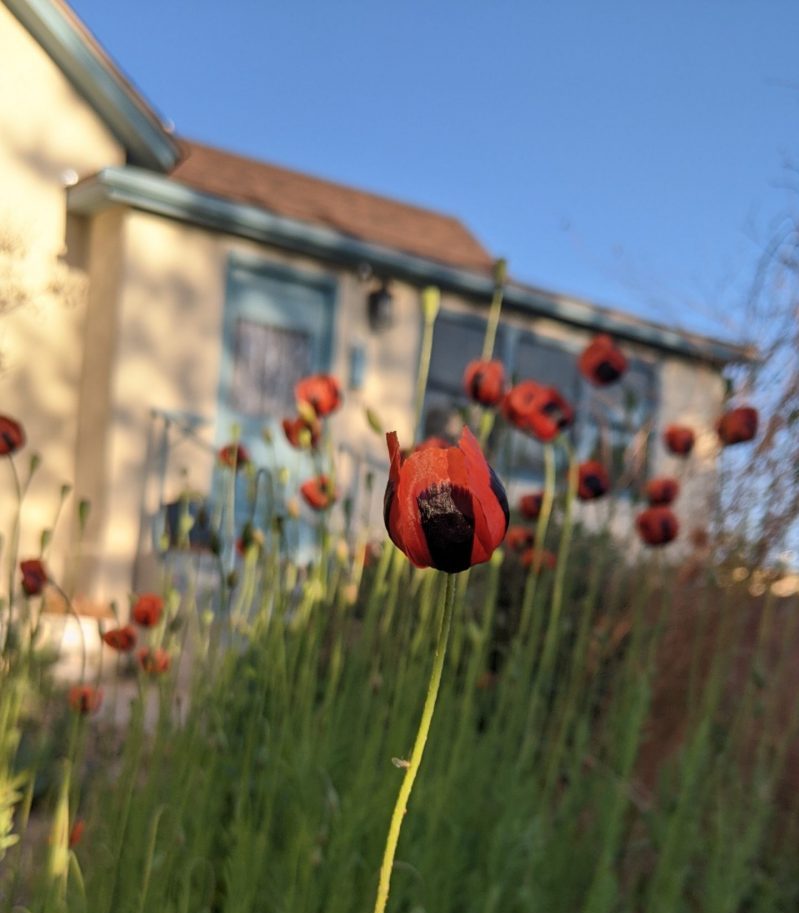Muse & the Marketplace: Day 4
I haven’t yet mentioned the rad questions of the day in each day’s welcome email:
Yesterday, Muse presenter Maya Shanbhag Lang said, “Look at the places where you feel fear in your writing. Now see them as a door.”
Where might you feel fear in your writing? What are you scared to try? Maybe it’s a risky scene, or an unruly character? A genre you’ve never tried before? Jot down what comes to mind. Now, start writing it.
Fear is the thing that has gotten me farthest, as a writer. When the quiet voice in me says, “You want this,” the rest of me trembles. And that trembling is when I know it’s time to Do The Thing.
Starting the 100 days of little poems project gripped me with fear–but at the same time, the quiet voice was firm as it has ever been: This is the thing you need.
The quiet voice knew that I needed to start sharing my poems, to get less precious about them, to let people in on the big secret. I needed to get that thick skin, to let the world see my work, ego be damned. And that quiet voice was right.
What am I scared to try right now? I’m scared this novel will be a waste of time. My mind keeps dragging me away, telling me to write more short fiction first, or to write some other, better novel first.
But finishing this book will teach me more than I can imagine about how this whole game works. I’m ready to learn.
Craft Time – First Pages
Well, guess who’s going to have to go back and rewrite the first chapter of their book?
Me!
Thanks to Amaryah Orestein’s First Impressions: How to Hook and Agent or Editor with Your Opening Pages for that revelation.
It’s not an egregiously terrible first chapter, but It’s too slow. There’s something I haven’t figured out about balancing world-building with setting the hook. This session gave some very clear feedback about how to make the first pages really hit hard: No mundane work. No named characters who don’t matter.
She gave some really great insights into what makes an opening slow (mundane tasks, long dialogue with no context, meeting too many irrelevant characters).
Certainly, I know that the opening pages are critical. But this session gave me a new way to think about how the actual craft is different for the first five pages. And I am going to back through some of the best books I’ve read lately and look closely at their first five pages.
A student shared in chat:
The first sentence must make you want to read the second. The second sentence must make you want to read the third. And so on.
So simple. And yet, so diffiicult.
I can’t wait to go back through my manuscript and apply some of these techniques. Look critically at other novels I’ve loved and learn from them. I feel my brain expanding.
Business Time
I attended Writing the Synopsis: Essentials, Tips, and Tricks For Crafting a Professional Synopsis (with Kaitlyn Johnson).
Turns out writing a synopsis really is super hard. She gave a lot of guidelines and suggestions, but my takeaway is that writing the synopsis really relies on a deep understanding of your story. And, it creates that deep understanding.
Which details are critical? Which details are extraneous? It’s hard to know! This is the A+ most intense part of killing your darlings. Which characters matter, which don’t. What details about the character matter. We don’t want motivations, we want actions.
To be honest, it helped me further the lessons learned from the first pages session, about what can be cut out. Check out the difference between (these examples paraphrased from Kaitlyn’s, please blame me for anything bad and credit her for the useful parts:
She stole the hoverbike and escaped into space.
vs.
She was angry, so she seduced the guard and stole his hoverbike to escape this cruel planet forever.
The first one is clear and tells you so much. You don’t know that she’s angry, but you can guess there are some strong feelings driving this behavior. The guard doesn’t matter. The planet probably sucks, since she’s running away, so don’t say it. Let the audience get there.
